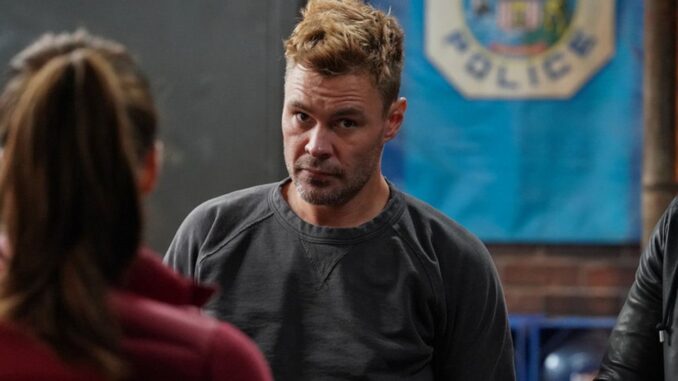
The Shadow and the Shield: Why Fans Are Obsessed with Jason Beghe’s Voight in Chicago P.D.
In the gritty, rain-slicked labyrinth of Chicago P.D., amidst the flashing blue lights and the urgent cries for justice, stands a figure as complex and unyielding as the city itself: Sergeant Hank Voight. Portrayed with visceral intensity by Jason Beghe, Voight is not merely a character; he is a force of nature, a moral tightrope walker, and a captivating enigma. Fans aren't just drawn to him; they are utterly obsessed, caught in the undertow of his dangerous charm, his brutal efficiency, and the unsettling question he constantly poses: how far is too far for justice?
At the heart of Voight's magnetic appeal lies his unapologetic embrace of the anti-hero archetype. He operates in a moral grey so profound it often verges on black. Where other officers might navigate the delicate dance of police procedure and due process, Voight simply cuts through it with a chainsaw. His interrogation tactics are legendary – often illegal, frequently violent, always effective. We've seen him hold suspects in undisclosed "black sites," rough up informers, and threaten anyone who stands between him and the truth. Yet, paradoxically, he does this not for personal gain or malice, but for the victims, for justice, and for his city. This willingness to shatter the rules, to become the monster necessary to catch other monsters, resonates deeply with an audience often frustrated by the perceived failings of the system. Voight gets results, often by any means necessary, and in a world craving swift solutions, his ruthless efficiency becomes a perverse form of heroism.
Furthermore, Voight's unwavering loyalty to his team and those he deems "his" is a powerful draw. Beneath the impenetrable scowl and the gravel-laced voice lies a fiercely protective patriarch. He is the shield, the one who will take the fall, cover the tracks, and bend every law to protect his unit. His relationship with Erin Lindsay, whom he essentially adopted and guided through her darkest moments, perfectly illustrates this. He wasn't just her boss; he was her surrogate father, unwavering in his belief in her, even when she stumbled. This paternal, almost tribal, devotion extends to every member of Intelligence. When one of them is in danger, Voight transforms from a detective into an avenging angel, and fans revel in the certainty that he will move heaven and earth to ensure their safety. It's a primal, visceral connection that transforms his morally dubious actions into acts of profound care.
Yet, perhaps the most compelling layer of Voight's character is the profound, often hidden, vulnerability that occasionally surfaces, revealing the wounded soul beneath the hardened exterior. The death of his son, Justin, remains a gaping wound, a tragedy that reshaped his entire being. We witnessed his raw, guttural scream, his descent into a grief so profound it threatened to consume him. These rare glimpses of his pain and loss humanize him, transforming him from a one-dimensional tough guy into a man haunted by personal demons, striving to make sense of a chaotic world through his own brutal code. It's in these moments that fans see not just a cop, but a deeply flawed human being who has lost so much, and whose relentless pursuit of justice is, in part, a desperate attempt to prevent others from experiencing his own sorrow.
Finally, Jason Beghe’s masterful portrayal is indispensable to the obsession. Beghe doesn't just play Voight; he is Voight. His unique, raspy voice, a serrated edge against the city's hum, carries an inherent weight of authority and implied threat. His piercing, unblinking stare can convey a multitude of emotions – intimidation, concern, fury, or a chilling calm – often without a single word. Beghe imbues Voight with a physical presence that is both menacing and world-weary, a man who carries the weight of every dark deed and every tough decision in his shoulders. It’s a performance so authentic, so utterly lived-in, that it blurs the lines between actor and character, making Voight feel terrifyingly real.
In the landscape of television crime dramas, Hank Voight stands as a towering, complex figure. Fans are obsessed with him not because he is purely good, but because he is a mirror reflecting the uncomfortable truths about justice, morality, and the lengths we might wish someone would go to make things right. He is the shadow and the shield, the necessary evil, and the fiercely loyal protector. In a world that often demands neat answers, Voight offers only a thrilling, unsettling, and utterly captivating shade of grey, forever cementing his place as one of television's most compelling anti-heroes.
